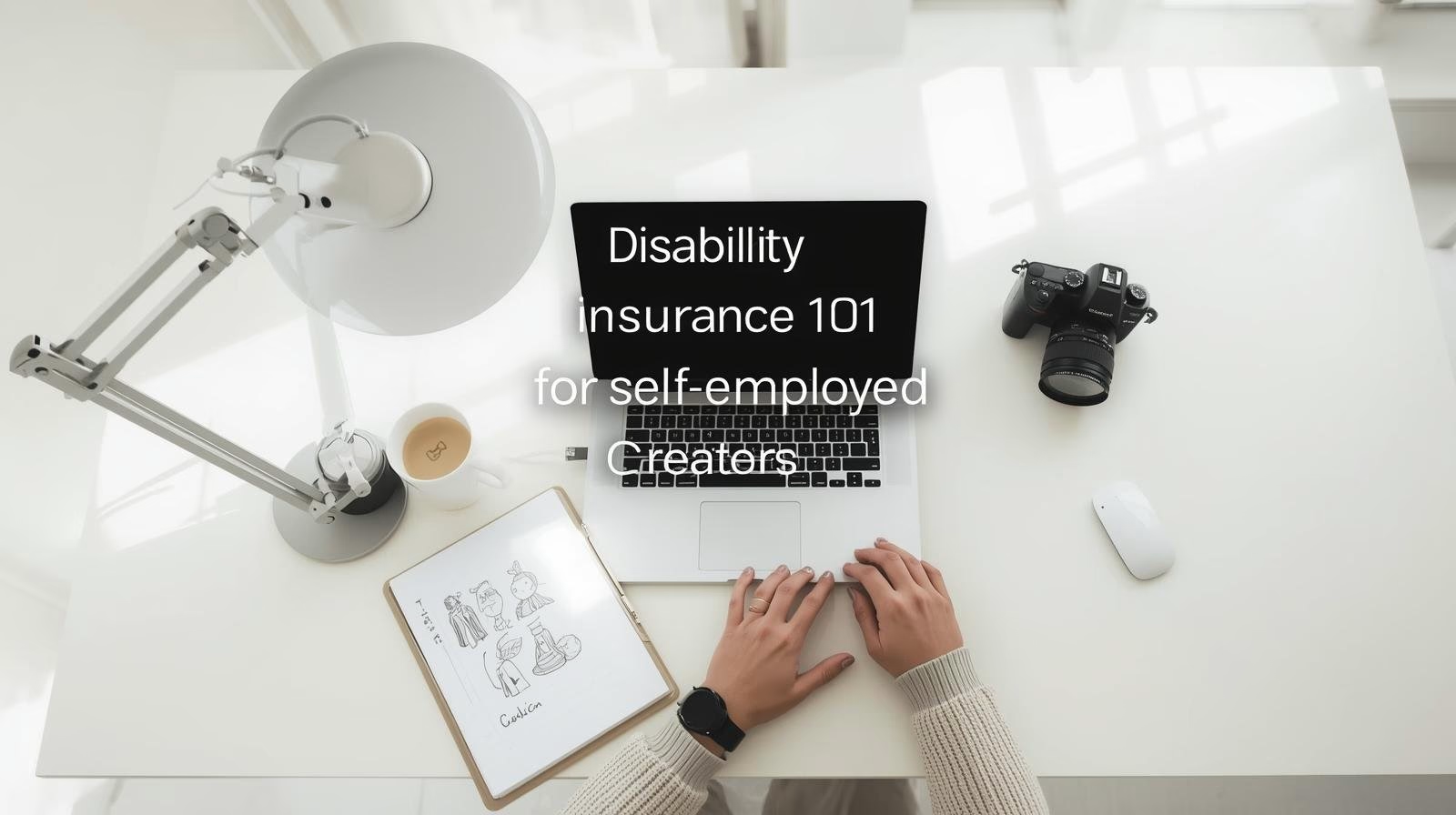Imagine having an injury or illness that makes it impossible for you to work. If you do freelance work like design, writing, or development, your ability is your pay. If you do not get it, bills will pile up, savings will drain fast, and your business will collapse overnight.
That’s where disability insurance comes in. It isn't easy, but it will ensure that your money will stay alive if you cannot earn anything. This guide will help you know how disability income insurance works, what type of coverage to buy, the cost of premiums, what smarter riders you must buy, and tax implications, to safeguard your lifestyle and business.
Why Disability Insurance Matters For Creators
You’re Your Own EmployerUnlike traditional employees, you don’t get group benefits. There’s no HR department offering coverage. You have to create your own safety net.
The Odds Are Higher Than You ThinkOne of the four working adults in the US will most likely experience a prolonged disability for over three months. That’s not rare—it’s reality.
Expenses Don’t StopEven if income stops, your obligations don’t.
• Rent or mortgage.
• Business subscriptions (software, internet, tools).
• Debt payments.
• Medical bills.
Disability insurance ensures you can keep the lights on, literally and figuratively.
Types Of Disability Coverage Every Creator Should Know
1. Short-Term Disability (STD)
- Pays benefits for a few weeks up to 6 months.
- Created with temporary illness, post-surgery recovery, or short illness in mind.
2. Long-Term Disability (LTD)
- Kicks in after STD ends (often 90 days).
- It can last for years, sometimes until retirement age.
- Essential if you rely entirely on your craft for income.
3. “Own-Occupation” Policies
- The gold standard. Protects you if you can’t do your specific work.
- In this case, if you're a freelance photographer who injures your hand, your benefits still apply even if technically, you could work in another job.
4. Business Overhead Expense (BOE) Insurance
- It protects your business finances in the event of your disability.
- Premiums are deductible; payouts are taxable.
How Disability Insurance Works
- Application & Underwriting: Supply medical history and proof of income.
- Waiting Period: The expenses must fall within coverage to be claims eligible.
- The benefit period determines how long you are covered: 2 years, 5 years, or to age 65.
- The Amount Usually Stays Between 60-80% of Your Pre-disability Salary.
Cost Expectations
Not to be confused with gratuitous insurance, disability insurance costs money. However, you’ll find it quite a bit cheaper than losing all of your income, on average.- A common guideline suggests giving between one and three percent of your annual income.
- Younger, healthier applicants lock in lower rates.
Smart Riders To Strengthen Your Policy
- Cost-of-living adjustment helps keep benefits in line with inflation.
- Future Increase Option: Allows you to increase coverage without any new medical exams.
- Partial Disability Rider: Pays you if you can work part-time, but not full-time.
- Non-Cancelable/Guaranteed Renewable: Premiums won’t increase unexpectedly.
Tax Angle
- Personal Disability Premiums: Not deductible. Benefits are generally tax-free.
- BoE insurance premiums can often be deducted. But the payouts are taxpayable.
- Suppose you combine your personal insurance with BOE insurance. It will cover you and your business.
Tips, Tricks & Hacks For Creators 💡
- Make an early application to be younger and healthier and pay much less.
- Some insurers offer discounts on your premium, allowing it to be bundled with a life or health plan.
- Choose an independent broker – one that compares multiple carriers to find the best fit.
- Make sure you have a 3-month cushion to fill in delays.
- If you already have cash reserves, short-term (optional) works balance STD + LTD; for non-cancellation is long-term.
- Revisit coverage. As your income grows, bring your policy in line with your salary.
FAQ Of The Self-Employed Creators’ Disability Insurance
What's the distinction between short and long-term disability?
How much coverage do I need?
Is disability insurance tax-deductible?
Can I get coverage if my income fluctuates?
Will mental health conditions be covered?
Do riders add much cost?
What if I work multiple gigs?
Do I need both STD and LTD?
How fast are claims paid?
Will benefits replace all of my income?
Is disability the same as workers’ comp?
How do insurers define disability?
Are premiums fixed?
What’s the typical waiting period?
Do freelancers qualify?
How does BOE insurance help?
Can I keep my policy if I move to another state?
How do I shop for policies?
Isn’t Social Security disability enough?
Final Thoughts
If you’re self-employed, your work is your wealth. Disability assurance keeps your finances safe from sudden setbacks. Health insurance is essential for financial well-being when bad things occur.This means you won’t think of running a creative business without backing up files. So why would you run it without backing up income? Get coverage while healthy, and thank your future self.

Comments (0)
No comments yet. Be the first to share your thoughts!
Leave a Comment